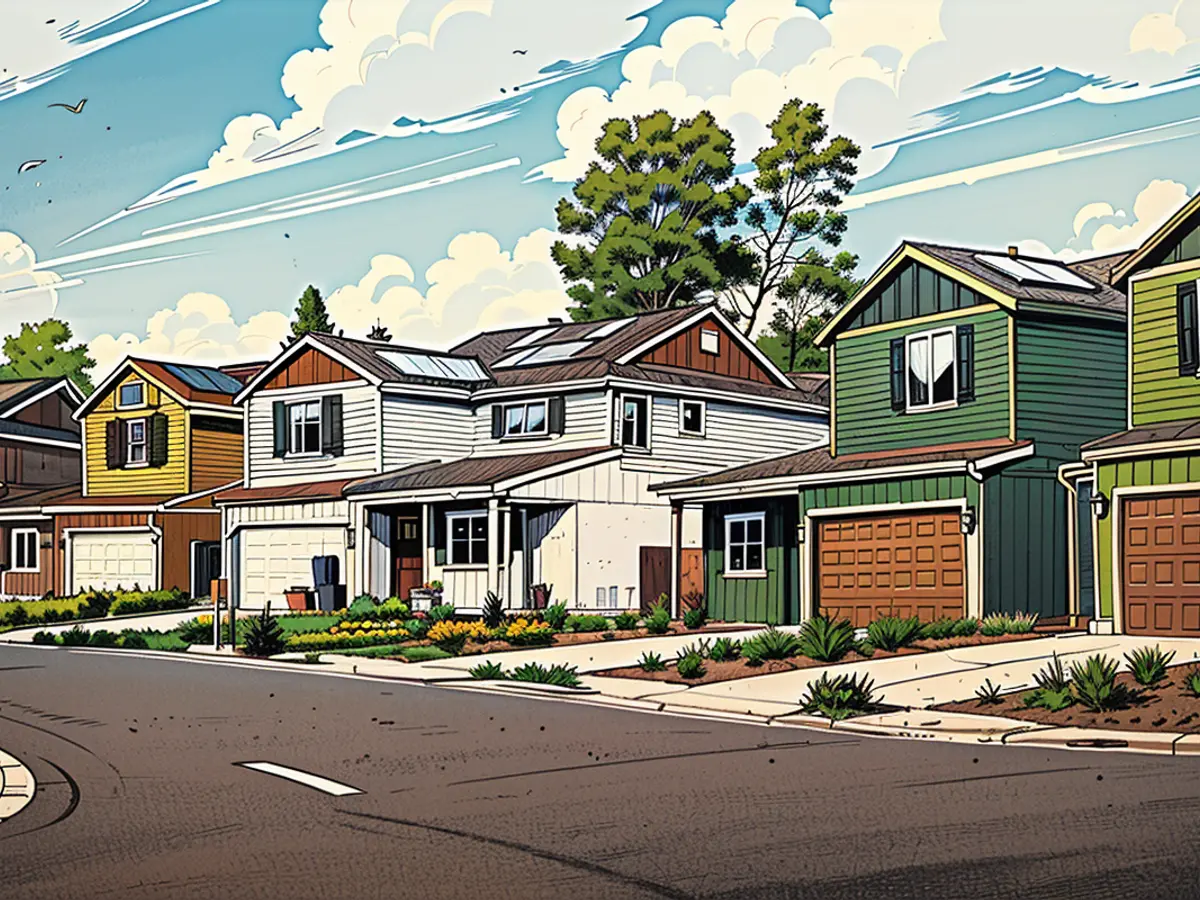Six Indications of Inefficient Homeowners Association Management
If you're on the market for a residence, you'll encounter numerous condominiums and homes governed by homeowners associations. In the U.S., approximately 370,000 such associations exist, and around 75% of new constructions fall under the jurisdiction of condominium associations or homeowner associations (HOAs). This means you'll need to factor in associated fees and occasional assessments for unforeseen repairs or maintenance costs while calculating your budget for affordability.
HOAs and condo boards can sometimes be causes for caution, but they often operate effectively and oversee a community's shared finances and spaces well. Regrettably, many of these associations are mandatory, making it impossible to avoid joining them when purchasing a home. Though there are numerous tales of overly stringent HOAs, many associations are managed responsibly.
However, should you purchase a residence in a neighborhood run by an incompetent or questionable community association, there might be concealed financial issues. Even if you are smitten with the house, the neighbors, and the fees appear reasonable, you could still face sky-high assessments following the purchase of the property. If you're contemplating buying a property under an association's control, these signals could indicate a future of substantial assessments:
Insufficient reserves
A competently managed homeowners association will set aside "reserves" - funds to cover unexpected expenses, such as emergency repairs. If the HOA or condo board lacks substantial reserves, every issue will culminate in a special assessment. If you happen to purchase the unit or home right before the issue arises, you could be forced to pay a hefty sum shortly after making one of your life's most significant financial commitments.
Whenever you consider purchasing a property governed by an association, thorough examination of the financial statements is essential. Low reserves should serve as a warning that you're buying a property accompanied by impending assessments since the association will have to replenish their reserves or tap into your pocket when an unforeseen event occurs, such as a leaking roof or a lawsuit against the community.
Lack of repairs
When evaluating any community association, it is crucial to scrutinize the maintenance and repair records. An absence of recent repairs could indicate that a long list of issues will soon become your responsibility. For instance, roofs are expensive. If the condominium has not had a new roof for decades, a new roof is imminent, and an assessment will probably follow to finance the operation. It is preferable to pay a regular, budgetable fee for routine maintenance and repairs rather than face a sudden demand for money.
While every state may have varying requirements regarding records, a reputable association should have them and should be able to provide details about when major items like roofs or widespread community areas were last repaired, replaced, or renovated. Any evidence of deferred communal maintenance should be viewed with the cost of an expensive future in mind.
Prolific litigation
One clear indicator of a looming hefty assessment following the purchase of your new property is litigation: If the association is involved in a major lawsuit (or a series of them), both legal costs and the settlement or judgement against the association will come out of your pocket in the form of increased fees or assessments.
These court records are public and can usually be accessed by conducting a simple online search for your city's name followed by "court records." If the association is embroiled in numerous lawsuits, it suggests incompetent management and the likelihood of swelling legal bills once you assume ownership.
Deteriorating common areas
One of the primary responsibilities of a community association is to maintain the "common" areas. While some communities only have basic concerns such as roads and sidewalks, others have amenities like clubhouses, playgrounds, pools, and rooftop decks that entice homebuyers.
When considering a condo or a house under an HOA, take a close look at the common areas. Is the community room in pristine condition, or is it showing signs of wear and tear, and the sound system is faulty? Has the pool been drained for years? If the common areas have not been renovated since the 80s, repairs or renovations will be required in due time, and the bill will be substantial.
Missing documentation
One of the best methods to evaluate a community is by reviewing a few years’ worth of meeting minutes and other paperwork. These documents will reveal essential information, such as the organization's management and their approach to maintenance and repairs.
One significant red flag? If the board or HOA refuses or can't provide you with those meeting minutes, it's a clear sign that something is amiss. If they flat-out refuse to grant you access, they're likely concealing information that could potentially cost you a fortune once you become an owner, or the association is dysfunctional, and proper records are not being maintained. In either situation, you should assume no minutes mean a substantial assessment is imminent, as secrecy or incompetence rarely equates to sound financial management.
No recent meetings held
If you're unable to obtain several years' worth of board meeting minutes and documents due to a lack of meetings in quite some time, this indicates that the entire community is being mismanaged. Even if the property appears pristine and the fees are reasonable, the absence of board or HOA meetings for years suggests that essential aspects, such as maintenance, repairs, and other expenses, have been neglected. Problems may not be visible for long, but rest assured, they will eventually surface, and just as you settle into your new unit, you'll undoubtedly encounter these issues.
If you're considering buying a property under a bad condo board or HOA, you might face unexpected high assessments. Low reserves in the association's financial statements could indicate impending assessments, as the association will need to replenish them or tap into your wallet when an unexpected event occurs.








